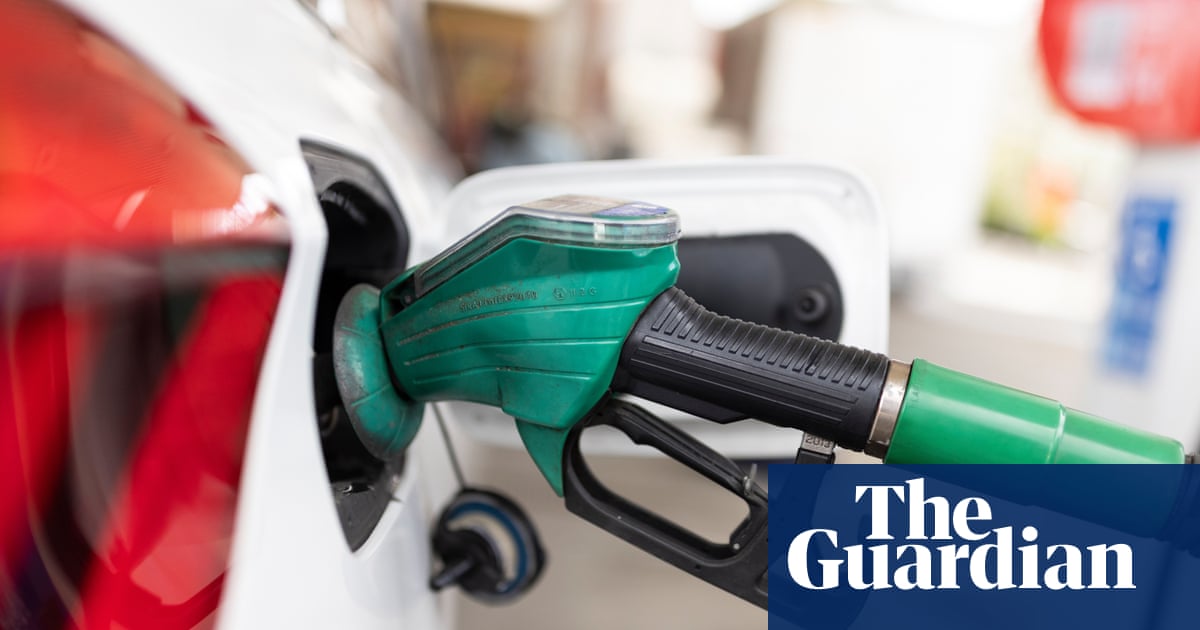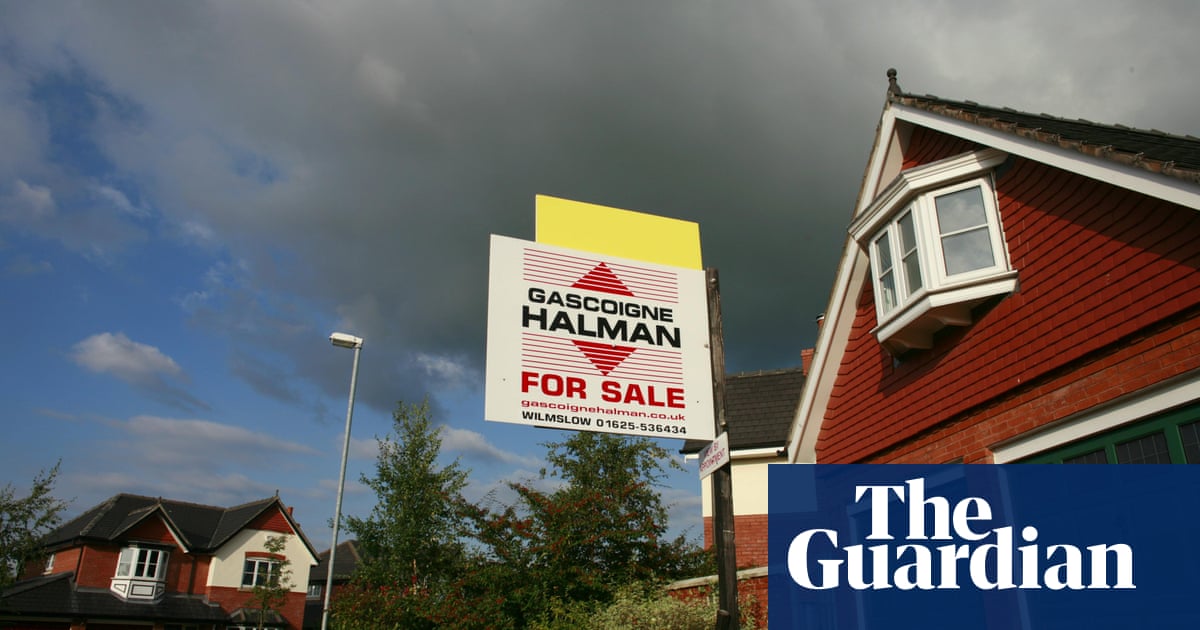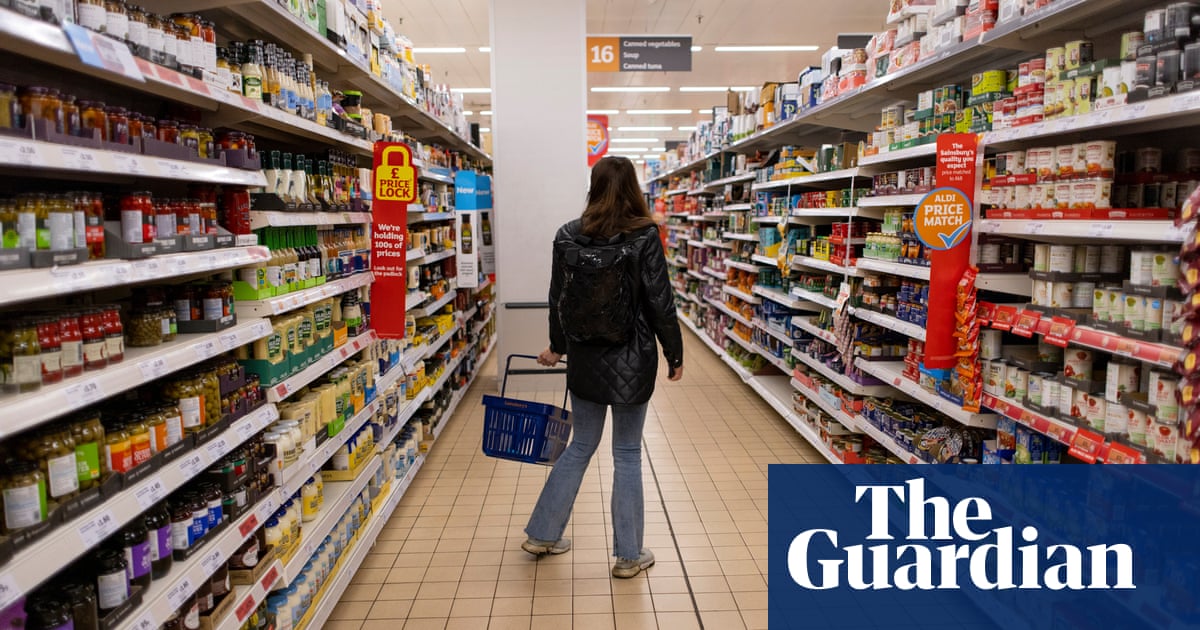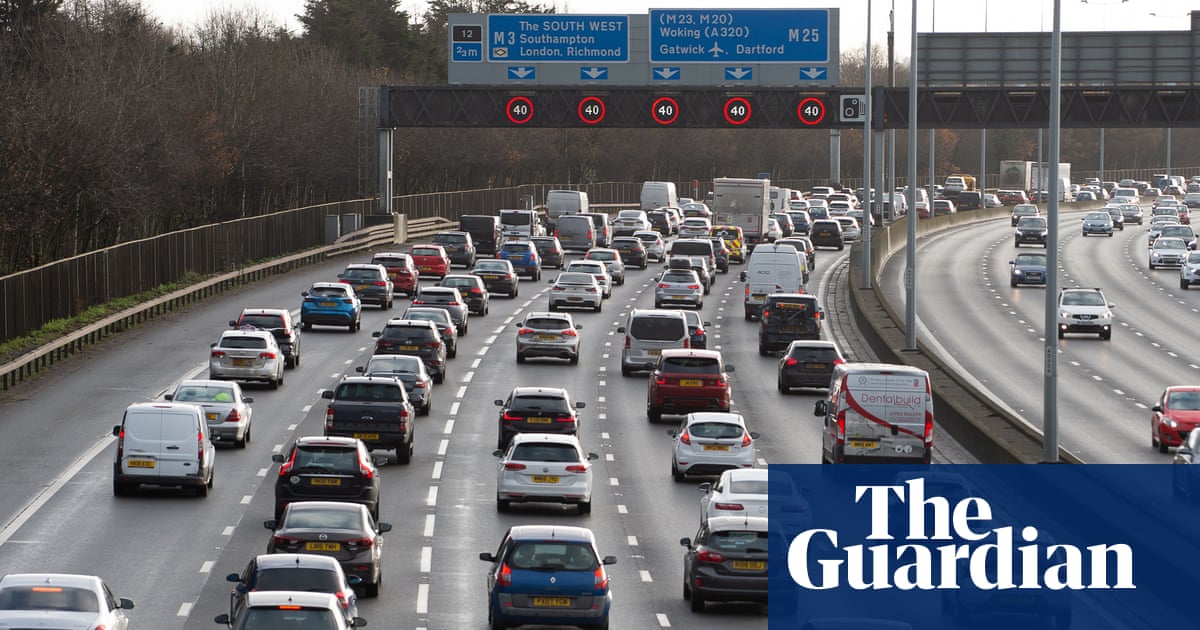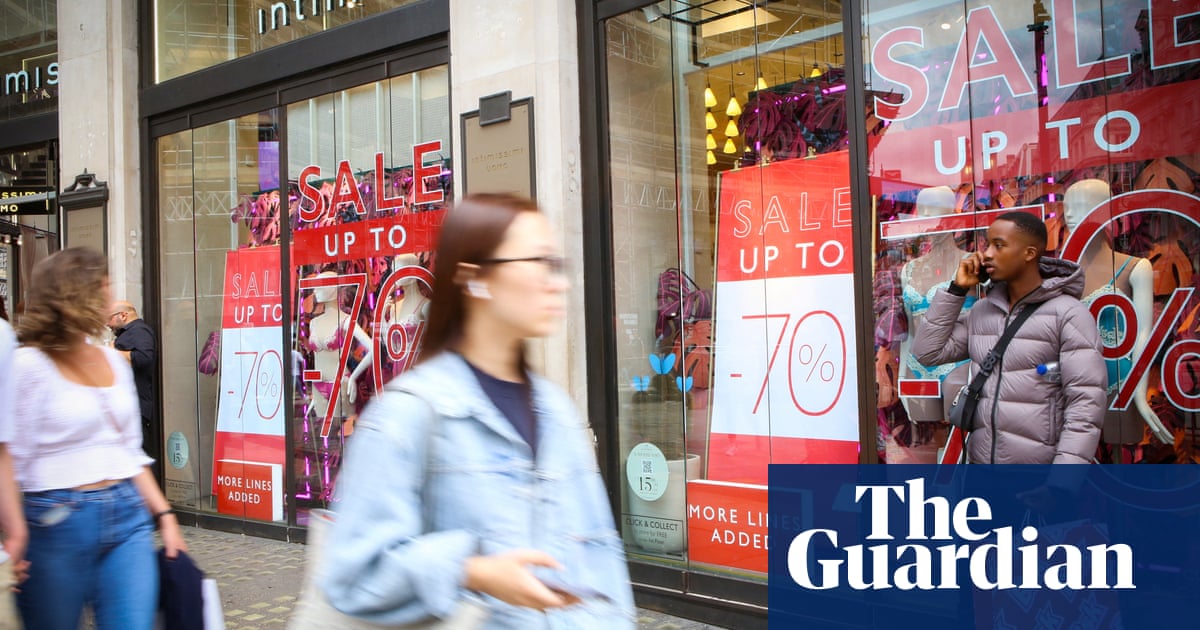
Britain’s hard-pressed retailers are being forced to slash their prices to drum up business after dismal summer weather and ever-higher interest rates combined to depress consumer spending in July.
The monthly health check of high street and online spending patterns from the British Retail Consortium and the consultancy KPMG reported a steep annual drop in the volume of sales and an increasing number of retailers offering promotional offers to woo consumers reluctant to part with their cash.
A separate report from Barclays found consumer sensitivity to “shrinkflation” – producers cutting the size of items but charging the same price or more – had broadened to include alcoholic drinks. More than one in five consumers (22%) said they had experienced “drinkflation” in which beers, spirits and canned cocktail drinks contained less alcohol.
Both the BRC/KPMG and the Barclays monthly reports said the value of spending rose modestly in July but fell once inflation – currently 7.9% – was taken into account. BRC/KPMG said the value of sales was 1.5% higher last month than in July 2022, while Barclays said consumer spending using credit and debit cards was up by 4% on a year ago.
Paul Martin, KPMG’s head of retail, said: “We are starting to see a big rise in the number of promotions that retailers are putting in place in order to get shoppers through the door, as they battle to keep market share.
“Price conscious consumers are shopping more carefully, more aware of where bargains can be found and what they are getting for their money – which is biting hard into retail margins and profitability. UK consumers have been hugely resilient throughout the cost of living crisis but stubbornly high inflation coupled with rapidly rising interest rates will test their ability and willingness to keep on spending for the rest of this year.”
The BRC/KPMG findings suggest summer price-cutting on the high street may have been more extensive than usual this year, and will raise the possibility of a bigger than expected drop in inflation when the July data is released next week. Financial markets are predicting the annual rate, as measured by the consumer prices index, will fall below 7%.
Barclays said shoppers continued to be selective about non-essential purchases, with seven out of 10 looking to find ways of cutting their weekly grocery bills.
The bank found a greater willingness to spend on concert tickets and eating out than on spending in high street stores. While the wet July depressed sales of summer clothes, spending on entertainment was up by almost 16% on a year ago.
Esme Harwood, a director at Barclays, said: “While July’s weather was a washout for clothing retailers, it was a ray of sunshine for takeaways and streaming services, which performed better than expected. Entertainment also enjoyed a huge boost, largely thanks to pre-sales for Taylor Swift’s and Foo Fighters’ upcoming stadium tours.
“With value-for-money still a major concern at the supermarket, eagle-eyed consumers are also spotting signs of ‘drinkflation’ – shrinkflation on alcoholic drinks. This could be due to manufacturers making changes to their products ahead of the recent changes to alcohol duty, which mean that drinks are now taxed according to strength rather than type.”
Barclays said the proportion of shoppers noticing shrinkflation rose from 70% in June to 73% in July, with chocolate (56%), crisps (49%) and packets of biscuits (46%) the products most frequently cited as being affected by the growing trend. A fifth (21%) of those who have noticed signs of shrinkflation said they were switching to brands that had not changed the size of their products.
Meanwhile, the gradual drift away from shopping online continued, with the proportion of non-food sales the lowest since the pandemic began more than three years ago. More than a third of all non-food sales still take place online, but the proportion was down by 35.3% in July 2022 to 34.7% last month, the BRC/KPMG report said.





